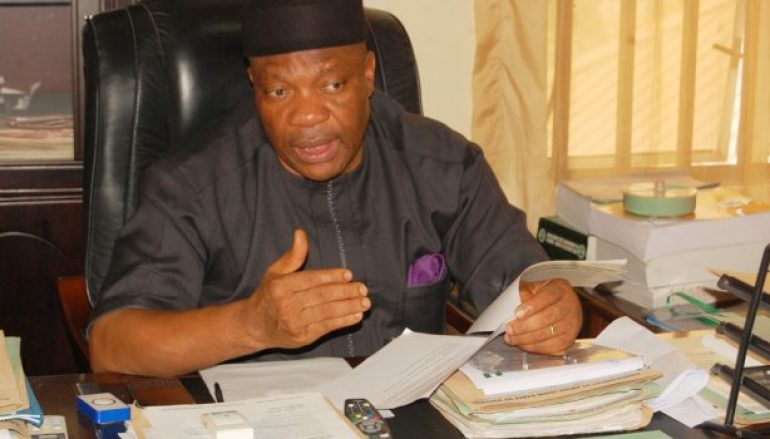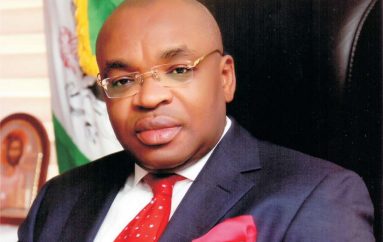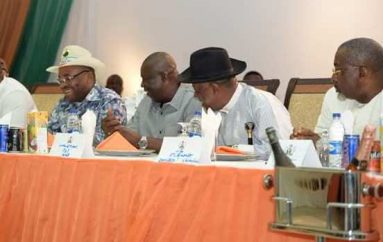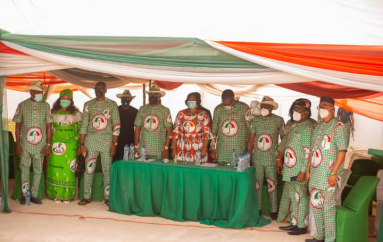
The Defector As Metaphor By Ekong Sampson
There is, unarguably, now, a hybrid of opinion about the high drama that follows defections in the Nigerian political space. The Nigerian politician has, somehow, succeeded in portraying himself in many colours. He comes across, in one, as the consummate folk-hero – elaborately draped in altruistic attire; one who wants to serve based on larger considerations. His people love him, and it is evident that in the fluid tapestry that the polity presents, wherever he goes, they will go with him. He has been standing by them, in thick and thin. They trust him. He lives for them, not for himself. Many are they who will still follow him, even if blind-folded. A man of the people.
In the other mosaic, more poignantly advertised, the Nigerian politician presents himself as nothing more than a bare-faced opportunist and hypocrite, decidedly contemptuous of principle and ideology; chameleonic, greedy, shameless. In between the two, are variants that defy valid location.
Almost daily, the Nigerian landscape is lit with news of defection of gladiators and featherweights. At the National Assembly the event is almost becoming a boring ritual. The lawmaker announces that he is defecting because of the “division” in his party or based on “overwhelming pressure from my people”. Some of them even go ahead to mouth less charitable mantra against the very vehicle they boarded to access the power valve. The Senate President, or Speaker, then makes some barely audible remarks about constitutionalism and parliamentary procedure. Trust our penchant for the theatrical. The decampee’s new partymen and women, burst into Etighi dance and back-slapping. The serene floor comes alive, buoyed up by a feeling of the redemptive spirit.
You may say it is the seed planted in the 50s in the Western Regional legislature by some great Nigerians that is in full sprout. You may also be a big believer in freedom of association and access to opportunity, whatever the vehicle. What you cannot readily resolve is how policy drives politics in this country.
In the United States, from where we copied our model of democracy, you can locate republicans and democrats, however inclement their weather is at a given period. In Nigeria our leading lights are identified among the fair-weather elite. They tread the path of convenience and consult only themselves, not their supporters, much of the time. It makes no sense to such politicians that poor response to ideological underpinnings puts pressure on democracy. It was actually the fear of the narrow path that took many of them into the Peoples Democratic Party, up to its apotheosis. But even the ruling All Progressives Congress should be wise enough to warn itself. APC’s internal contradictions are so intense that to measure its strength on the basis of defections to its fold is to celebrate standing on false earth. The entrants actually belong to no party. Their ideological weaknesses should explain why the Peoples Democratic Party defeated itself.
But there is a life-line. As our players keep changing positions, the evil of – a one-party scenario is still not lost on our remaining patriots – as decimated as that esteemed tribe might be in a land where so many are being unmasked in the market-place as hollow ideologues and ethnic prophets. It is a tribe that believes that policy must drive politics, not vice-versa. It is a tribe that looks at the larger democracy picture, never minding the narrow path, and lives forever.

 List of Newly Elected Chapter Officers
List of Newly Elected Chapter Officers  Inauguration of Newly Elected Ward Executive Officers
Inauguration of Newly Elected Ward Executive Officers  Gov Emmanuel Dedicates Victory To God, Akwa Ibom People
Gov Emmanuel Dedicates Victory To God, Akwa Ibom People  Paul Ekpo: A Harvest Of Mercurial Performance
Paul Ekpo: A Harvest Of Mercurial Performance 


